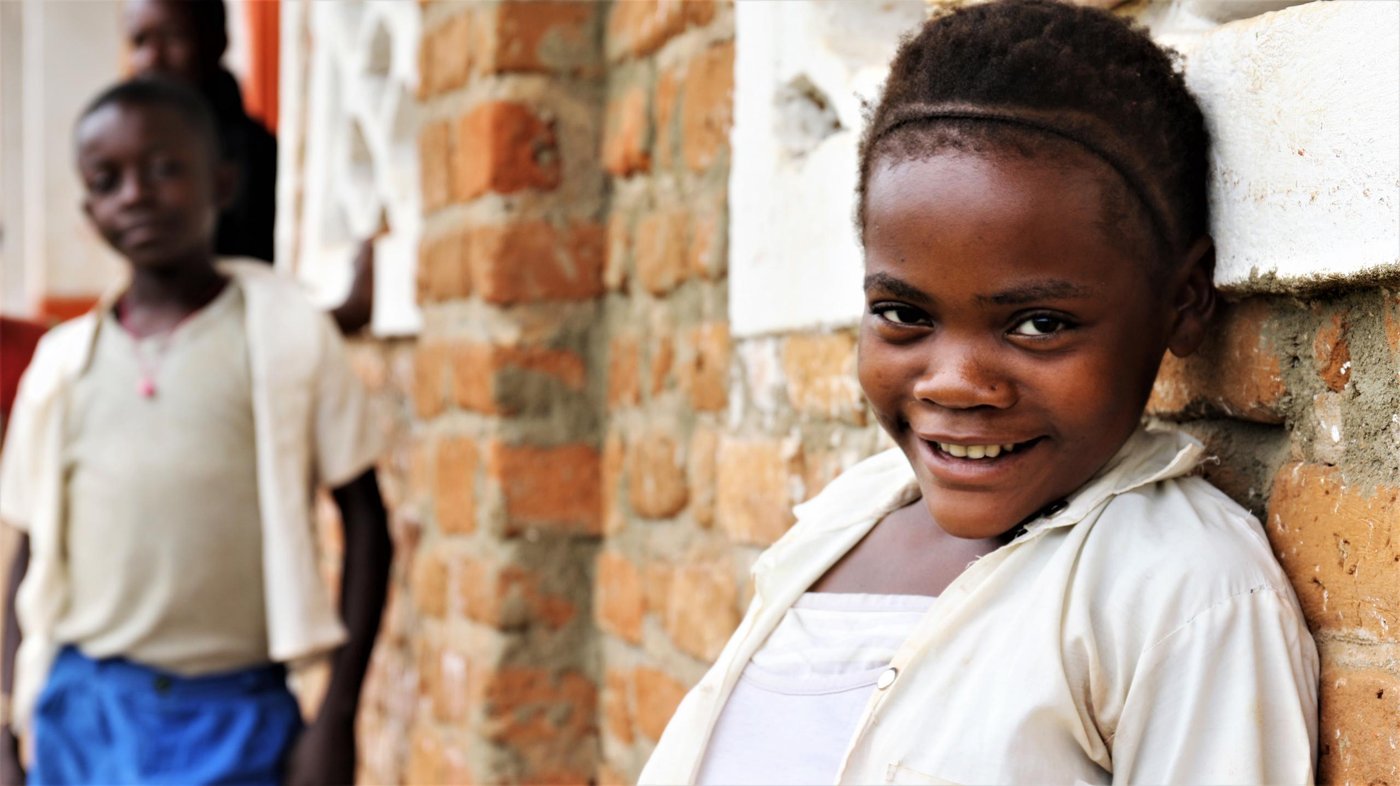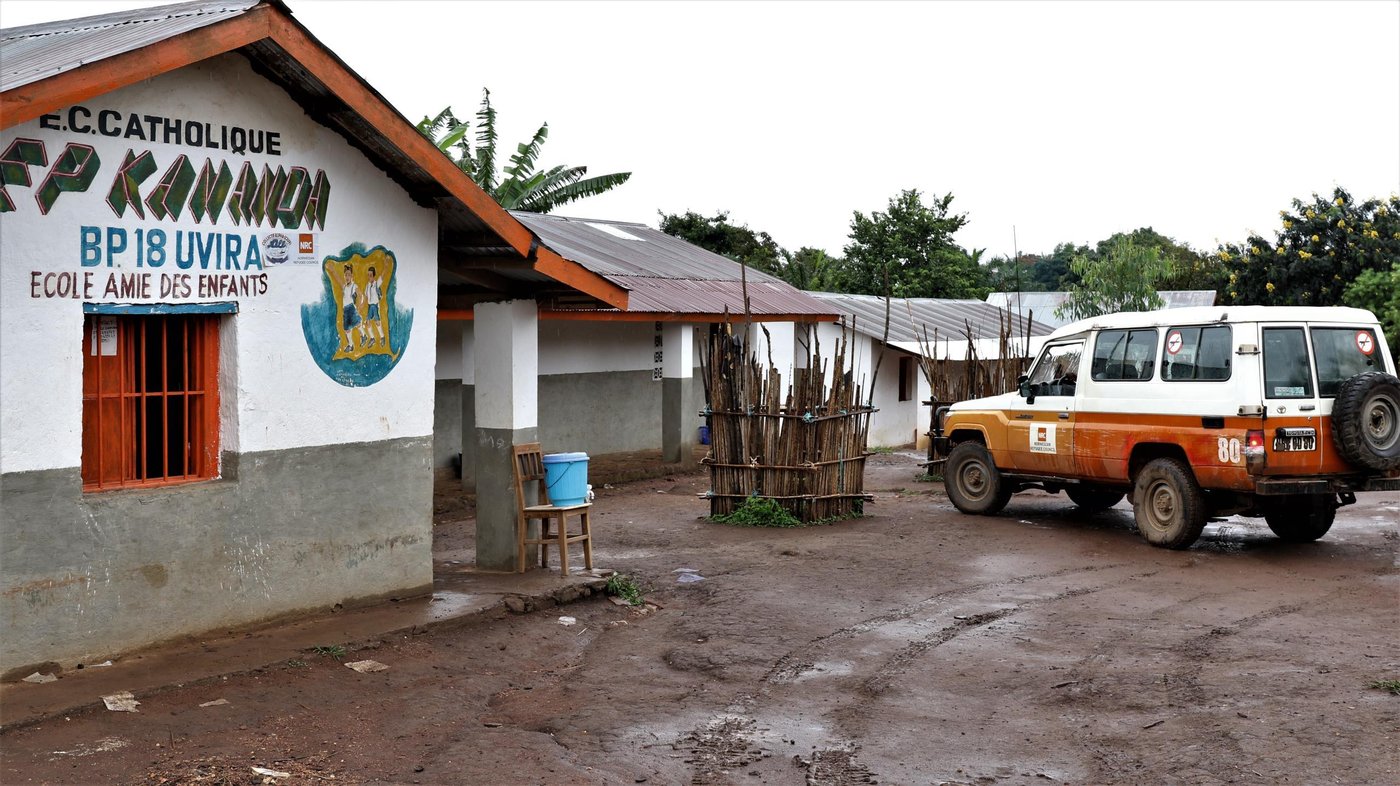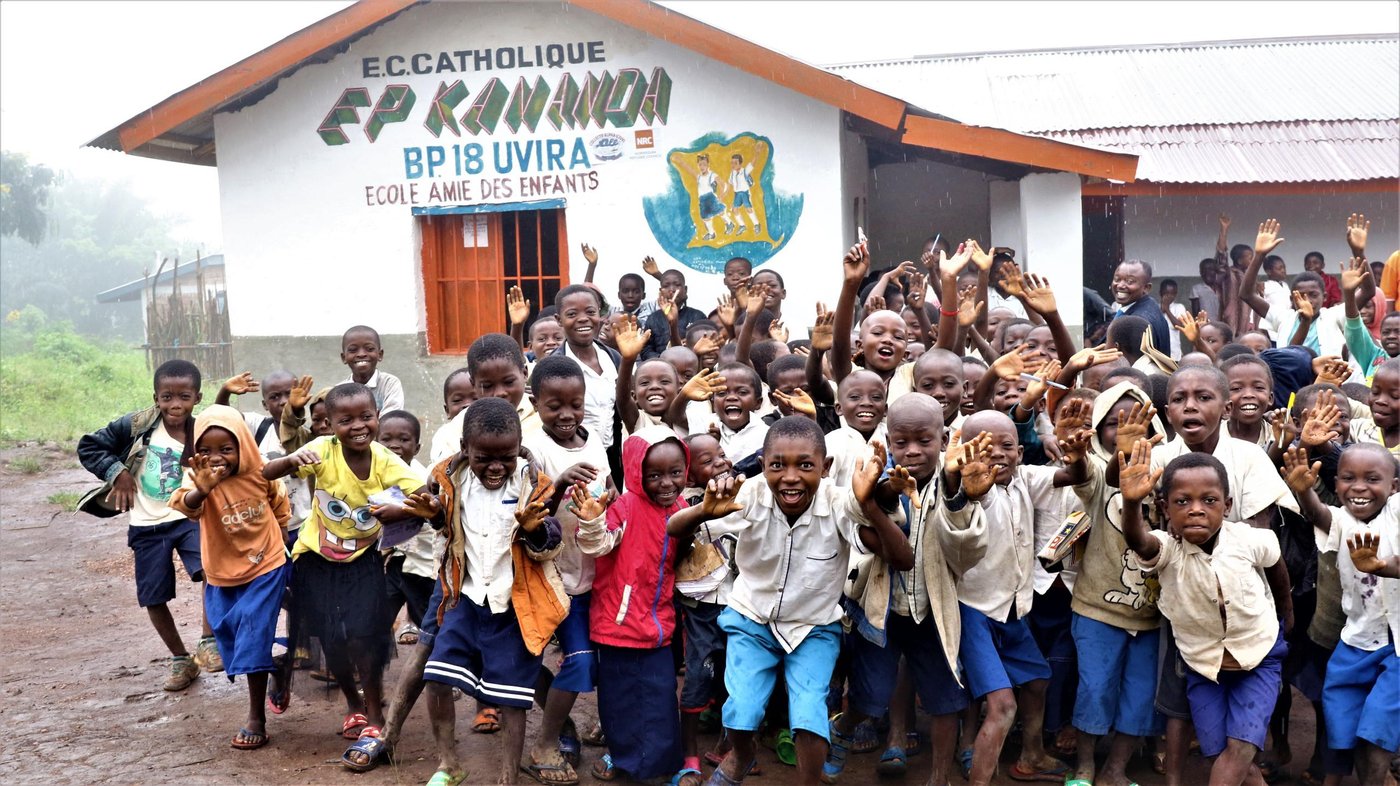Det forteller kongolesiske Jerome Atembo. Han jobber som rektor på en barneskole i Sør-Kivu, en av mange konfliktrammede provinser i Den demokratiske republikken Kongo. I over 20 år har millioner av kongolesiske barn fått avbrutt skolegangen sin igjen og igjen på grunn av konflikt. Minst 7,4 millioner barn i landet mellom fem og 17 år går ikke på skole. Mange dropper også ut av skolen fordi de ikke har råd til å betale skolepenger.
DR Kongo er nummer to på Flyktninghjelpens liste over verdens mest neglisjerte fluktkriser. Kamper mellom væpnede grupper over ressurser og territorier, ødeleggelse av hjem og skoler, samt angrep på sivile har skapt et betydelig behov for humanitær hjelp i flere deler av landet. Situasjonen har blitt enda mer komplisert etter at et utbrudd av ebola ble erklært øst i landet i august 2018.
Atembos skole ligger i landsbyen Kananda i den gullrike provinsen Sør-Kivu øst i DR Kongo. De fleste innbyggerne lever av gårdsbruk og arbeid i gullgruvene utenfor landsbyen. De siste årene har det jevnlig brutt ut vold mellom væpnede grupper som representerer landeiere eller kvegnomader, noe som skaper stor usikkerhet i innbyggernes liv.
Flyktet fra skolen
Skolene ble påført store ødeleggelser av kampene. I 2017 hadde alle landsbyens lærere og elever flyktet på grunn av volden, og all skolegang ble avbrutt. Situasjonen er fortsatt ustabil, men elever og lærere har begynt å vende tilbake.
Flyktninghjelpen jobber tett med konfliktrammede lokalsamfunn for å bygge opp igjen og reparere ødelagte skoler, organisere skoletimer hvor barn som har vært ute av skolen kan ta igjen det tapte og kurse lærere.

Tilbake på skolebenken
I hvit skjorte og marineblått skjørt går tretten år gamle Francine stolt til skolen i Kananda. Hun er ett av 14.000 barn som deltar i Flyktninghjelpens skoleprogram i Sør-Kivu. I 2018 ble Francines far drept i et angrep i landsbyen. Siden har ingen vært i stand til å betale for utdanningen hennes, og hun ble utvist fra skolen fordi skolepengene uteble.
– Moren min hadde ingen penger å betale for skolegangen min, forteller Francine. – Så jeg måtte slutte på skolen og hjelpe henne på gården.
Men på begynnelsen av 2019 begynte Francine på Flyktninghjelpens skoleprogram hvor hun fikk anledning til å ta igjen det tapte skoleåret, og hun utviklet kunnskapene sine i fransk, matte og andre fag. I tillegg har hun fått kladdebøker og skrivesaker.

Bygger opp klasserom, bygger opp liv
Takene på Kananda skole var fulle av kulehull etter kampene, og når det regnet ble klasserommene fylt av vann. I tillegg manglet skolen et skikkelig sanitæranlegg. Flyktninghjelpen har reparert taket, satt inn vinduskarmer og dører i metall og bygget nye latriner på skolen. Fra 2018 til 2019 økte antallet elever på skolen fra 240 til 340.
Kananda er en av 32 skoler Flyktninghjelpen har reparert i Sør-Kivu, men behovene er fremdeles enorme – i regionen og i resten av landet.


